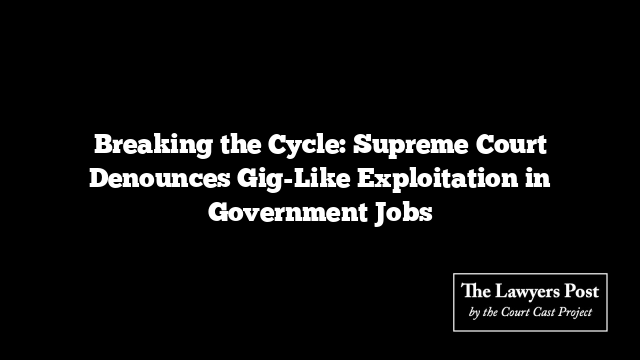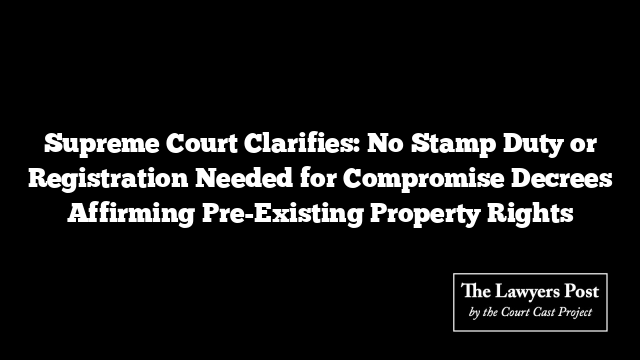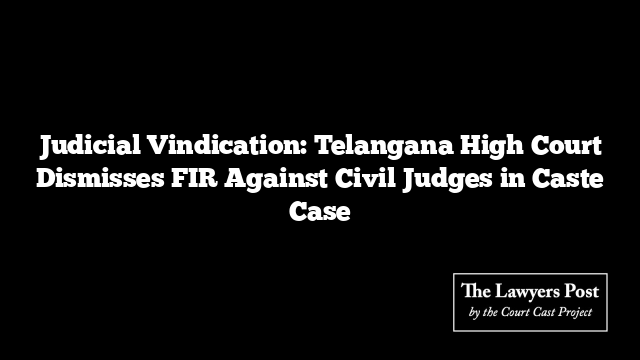The Supreme Court has taken a decisive stand against the misuse of temporary employment contracts within government institutions, likening such practices to the exploitative trends seen in the gig economy. Delivering a pivotal judgment, the Court emphasized the critical responsibility of public sector entities to uphold fairness and justice in employment.
A bench comprising Justice Vikram Nath and Justice Prasanna B. Varale addressed the plight of temporary employees of the Central Water Commission, many of whom had served for nearly two decades without job security. The Court allowed the regularization of these workers, criticizing the systemic misuse of temporary contracts that deprives employees of essential rights.
A Stark Warning Against Exploitative Practices
The judgment highlighted a growing trend where essential, recurring roles are falsely categorized as “temporary” or “contractual,” denying workers the benefits and dignity afforded to regular employees. This misclassification, the Court noted, mirrors the private sector’s gig economy, where job security and labor rights are often sacrificed in favor of profit.
The Court underscored several troubling practices:
- Arbitrary Dismissals: Temporary employees face sudden terminations, often without justification or notice, fostering a climate of perpetual insecurity.
- Stalled Careers: Opportunities for advancement, skill development, or pay increments are frequently denied to these workers, creating stark inequalities.
- Outsourcing Loopholes: Institutions replace temporary workers with outsourced labor, perpetuating exploitation and sidestepping obligations.
- Denial of Basic Rights: Temporary workers, despite years of service, are often excluded from pensions, health insurance, and paid leave, leaving them vulnerable in times of need.
Government Institutions Must Lead by Example
The judgment drew on international labor standards, including those advocated by the International Labour Organization (ILO), and cited a U.S. precedent to reinforce the principle that employment status should reflect the nature of work performed, not arbitrary labels. The Court reminded government entities of their role in setting ethical benchmarks, warning that prolonged reliance on temporary contracts not only contravenes labor standards but also invites legal challenges and erodes public trust.
A Call for Justice and Reform
The ruling called for an end to the prolonged exploitation of temporary workers, emphasizing that government departments must prioritize fair practices. Institutions should recognize the contributions of long-serving employees and transition them into stable roles, fostering job security and reducing unnecessary litigation.
The judgment serves as a stark reminder that government institutions, as custodians of justice, must eschew exploitative practices and uphold the values they are duty-bound to protect.





